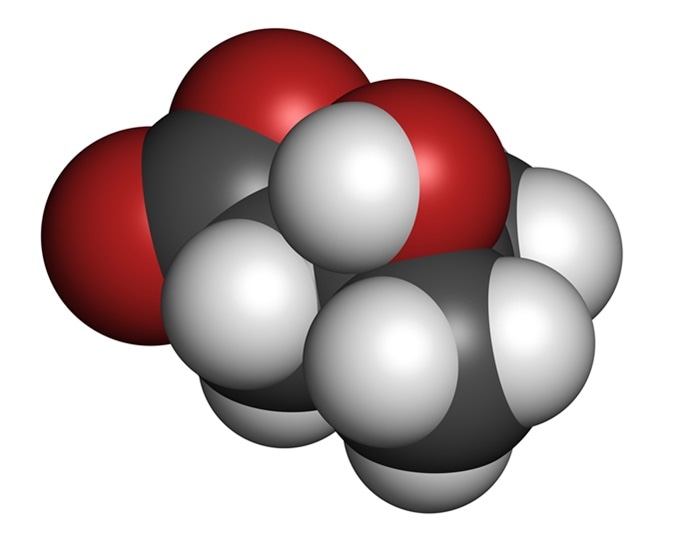Branched chain amino acids (BCAA), such as leucine, isoleucine, and valinemake up one-third of muscle protein. However, among these three, leucine has been given the most extensive focus due to its broad role in metabolism, homeostasis, exercise recovery, and insulin action. Leucine has the ability to metabolize into a-ketoisocaproate (KIC) or beta-hydroxy-beta-methylbutyrate (HMB), the latter of which is believed to induce anti-catabolic, anabolic, and lipolytic effects.
Beta-hydroxy-beta-methylbutyrate is a leucine metabolite that is generally utilized to promote muscle-building and increase physical activity. While the positive effects of leucine, especially its anti-catabolic properties, have been known for at least 35 years. the exact scope of HMB’s effects on the body have yet to be determined. Current studies on the mechanism of leucine’s metabolism into KIC or HMB are also unsuccessful in outlining the specific process.

Beta-hydroxy beta-methylbutyric acid (HMB) leucine metabolite molecule. Used as supplement. Atoms are represented as spheres with conventional color coding. Image Credit: molekuul_be / Shutterstock
Uses of HMB
Beta-hydroxy-beta-methylbutyrate has two primary uses; for medical supplementation and for performance enhancement. Over the years, HMB has been used in numerous clinical trials to test its applicability on various populations and medical conditions, particularly in preserving lean body mass in muscle burning conditions.
Beta-hydroxy-beta-methylbutyrate is also commonly utilized as a dietary supplement primarily for the enhancement of strength and lean body mass in resistance training. As only 5% of leucine normally metabolizes into HMB, an individual would need to consume about 60 grams of leucine from vegetables and fish in order to attain the ideal daily HMB allowance of 3 grams.
HMB is usually supplemented either as a free acidform or as a monohydrated calcium salt (HMB-Ca, CaHMB). Regular supplementation of the metabolite is now made available by a number of pharmaceutical laboratories. However, natural supplementation can be done by digesting large quantities of HMB-rich foods like asparagus, avocado, grapefruit, catfish, and cauliflower.
Empirical Evidence
Research has been conducted in order to test the effectiveness of beta-hydroxy-beta-methylbutyrate in muscle-building. Presented below is some important empirical evidence associated with HMB.
HMB and Sarcopenia
The loss of muscle mass is empirically-proven to be associated with aging. This normal condition may at times lead to sarcopenia, which is the degenerative loss of muscle mass which limits physical function and increases mortality. Recognizing that HMB has whole body protein synthesis enhancement and increased collagen abilities,the Geriatrics Department of Padova University sought to study the effects of HMB supplementation on the older female population (at least 65 years old).
Participants were subjected to a randomized controlled trial that involved two groups (experimental and control). A supplement containing 1.5 grams of calcium HMB was regularly given to the experimental group for a total of eight weeks. Results showed that the supplement significantly improved the participants’ muscle strength and parameters on physical activities. While the study calls for further research on HMB, it recognizes the role of HMB in delaying muscle degradation and similar conditions among the elderly population.
Integration of HMB Free Acid and Adenosine Triphosphate
When the muscle-building properties of HMB were discovered, researchers hypothesized its wide usability in the field of resistance training and its interaction with other compounds. Because adenosine triphosphate has the ability to maintain performance and recovery under high-fatigue physical activity, subsequent research sought to find a possible relationship between the compound and HMB.
The study applied available empirical findings on ATP and HMB free acid (HMB-FA), and applied them within a routine of resistance-trained individuals for a period of 12 weeks. Findings suggest that HMB-FA/ATP supplementation significantly contributed in strength maintenance, in comparison to a placebo group whose strength and power declined after a series of the same exercise. The findings of this study imply that a combination of HMB-FA and ATP could be utilized by individuals who regularly engage in high-intensity training.
HMB and Cardiovascular Risk Factors
While HMB is being widely utilized in muscle-building and resistance training, no quantitative report on the safety of HMB on human use has been reported yet. An in-depth review was conducted which analyzed nine studies about HMB supplementation in humans (3 grams per day for a period between three to eight weeks).
The researchers found that HMB posed no threat to human health; in fact, HMB may well be a helpful agent in relieving individuals from the risk of cardiovascular problems. It was discovered that a supplementation of HMB significantly reduced LDL cholesterol and systolic blood pressure, ultimately reducing the risk of stroke and heart attack. Therefore, HMB could be utilized as an ergogenic aid in enhancing overall health and well-being.
Further Reading
Last Updated: Oct 22, 2018